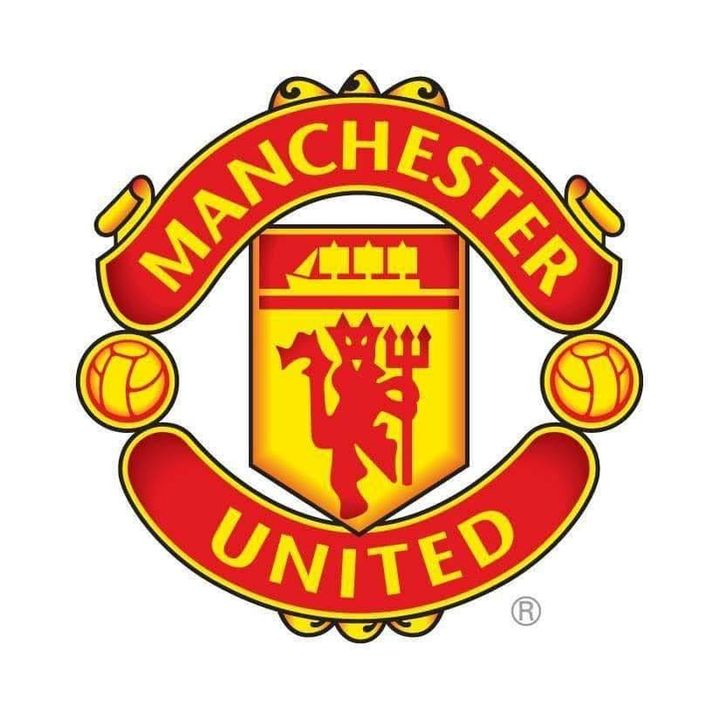Bournemouth's Stunning Victory: A Wake-Up Call for Manchester United
December 23, 2024, 3:50 am

Location: United States, New Hampshire, Manchester
Employees: 501-1000
Founded date: 1878

Location: United Kingdom, England, Bournemouth
Employees: 201-500
Founded date: 1890
In a chilling December showdown at Old Trafford, AFC Bournemouth delivered a stunning 3-0 defeat to Manchester United. The match, played on December 22, 2024, was a stark reminder of the shifting tides in the Premier League. Bournemouth, the underdog, rose to fifth place, while United found themselves languishing in the depths of the table, a position they had never occupied at Christmas in the Premier League era.
The game began with a palpable tension. Fans filled the stands, their hopes hanging like icicles in the winter air. Bournemouth, with their newfound confidence, struck first. Dean Huijsen, a name that echoed through the stadium, found the net early. His goal was a dagger to United's ambitions, sending a clear message: Bournemouth was here to play.
As the match progressed, the narrative unfolded like a well-scripted drama. Justin Kluivert, a player who has been on the rise, doubled the lead from the penalty spot. The roar of the Bournemouth supporters was thunderous, drowning out the groans of United fans. Kluivert's celebration was a vivid display of joy, a stark contrast to the dejection visible on the faces of the home crowd.
Manchester United, once a titan of English football, appeared disjointed. Their players moved like shadows, lacking the spark that once defined their play. Bruno Fernandes, a key figure, missed a golden opportunity that could have shifted momentum. The frustration was palpable. Fans, once filled with hope, began to trickle out of the stadium, their disappointment evident.
Ruben Amorim, United's manager, bore the brunt of the criticism. His tactical decisions were questioned, and the weight of expectation hung heavy on his shoulders. The loss was not just a scoreline; it was a reflection of a deeper malaise within the club. For the first time in Premier League history, United would spend Christmas in the bottom half of the table. The ghosts of past glories haunted the corridors of Old Trafford.
Bournemouth's third goal, scored by Antoine Semenyo, was the final nail in the coffin. It was a well-crafted move, a testament to their teamwork and determination. The ball found the back of the net, and with it, the dreams of a United resurgence faded further into the distance. Bournemouth's players celebrated like they had won a cup final, their joy infectious and genuine.
The match statistics told a story of dominance. Bournemouth controlled possession, created more chances, and executed their game plan with precision. In contrast, United struggled to find their rhythm. The disparity was stark, a visual representation of the two teams' current trajectories.
As the final whistle blew, the reality set in for Manchester United. The fans who remained were left to ponder the future. Questions loomed large: What next for Amorim? Can this team be salvaged? The answers were elusive, hidden beneath layers of frustration and disappointment.
Bournemouth's victory was not just a win; it was a statement. They have transformed from relegation battlers to a team that can challenge the status quo. Their rise is a testament to hard work, strategy, and belief. Each player on the pitch contributed to this triumph, showcasing their potential and ambition.
For United, the road ahead is fraught with challenges. The club must regroup, reassess, and rebuild. The players need to find their identity again, to remember what it means to wear the famous red jersey. The fans deserve better, and the club's legacy demands it.
As the festive season approaches, the contrast between the two clubs could not be starker. Bournemouth will celebrate their achievements, while United will reflect on their failures. The Premier League is a relentless beast, and it waits for no one.
In the end, this match serves as a reminder of the unpredictability of football. One moment, a team is soaring; the next, they are grounded. Bournemouth's victory is a beacon of hope for underdogs everywhere. For Manchester United, it is a wake-up call. The time for change is now. The clock is ticking, and the fans are watching.
The game began with a palpable tension. Fans filled the stands, their hopes hanging like icicles in the winter air. Bournemouth, with their newfound confidence, struck first. Dean Huijsen, a name that echoed through the stadium, found the net early. His goal was a dagger to United's ambitions, sending a clear message: Bournemouth was here to play.
As the match progressed, the narrative unfolded like a well-scripted drama. Justin Kluivert, a player who has been on the rise, doubled the lead from the penalty spot. The roar of the Bournemouth supporters was thunderous, drowning out the groans of United fans. Kluivert's celebration was a vivid display of joy, a stark contrast to the dejection visible on the faces of the home crowd.
Manchester United, once a titan of English football, appeared disjointed. Their players moved like shadows, lacking the spark that once defined their play. Bruno Fernandes, a key figure, missed a golden opportunity that could have shifted momentum. The frustration was palpable. Fans, once filled with hope, began to trickle out of the stadium, their disappointment evident.
Ruben Amorim, United's manager, bore the brunt of the criticism. His tactical decisions were questioned, and the weight of expectation hung heavy on his shoulders. The loss was not just a scoreline; it was a reflection of a deeper malaise within the club. For the first time in Premier League history, United would spend Christmas in the bottom half of the table. The ghosts of past glories haunted the corridors of Old Trafford.
Bournemouth's third goal, scored by Antoine Semenyo, was the final nail in the coffin. It was a well-crafted move, a testament to their teamwork and determination. The ball found the back of the net, and with it, the dreams of a United resurgence faded further into the distance. Bournemouth's players celebrated like they had won a cup final, their joy infectious and genuine.
The match statistics told a story of dominance. Bournemouth controlled possession, created more chances, and executed their game plan with precision. In contrast, United struggled to find their rhythm. The disparity was stark, a visual representation of the two teams' current trajectories.
As the final whistle blew, the reality set in for Manchester United. The fans who remained were left to ponder the future. Questions loomed large: What next for Amorim? Can this team be salvaged? The answers were elusive, hidden beneath layers of frustration and disappointment.
Bournemouth's victory was not just a win; it was a statement. They have transformed from relegation battlers to a team that can challenge the status quo. Their rise is a testament to hard work, strategy, and belief. Each player on the pitch contributed to this triumph, showcasing their potential and ambition.
For United, the road ahead is fraught with challenges. The club must regroup, reassess, and rebuild. The players need to find their identity again, to remember what it means to wear the famous red jersey. The fans deserve better, and the club's legacy demands it.
As the festive season approaches, the contrast between the two clubs could not be starker. Bournemouth will celebrate their achievements, while United will reflect on their failures. The Premier League is a relentless beast, and it waits for no one.
In the end, this match serves as a reminder of the unpredictability of football. One moment, a team is soaring; the next, they are grounded. Bournemouth's victory is a beacon of hope for underdogs everywhere. For Manchester United, it is a wake-up call. The time for change is now. The clock is ticking, and the fans are watching.